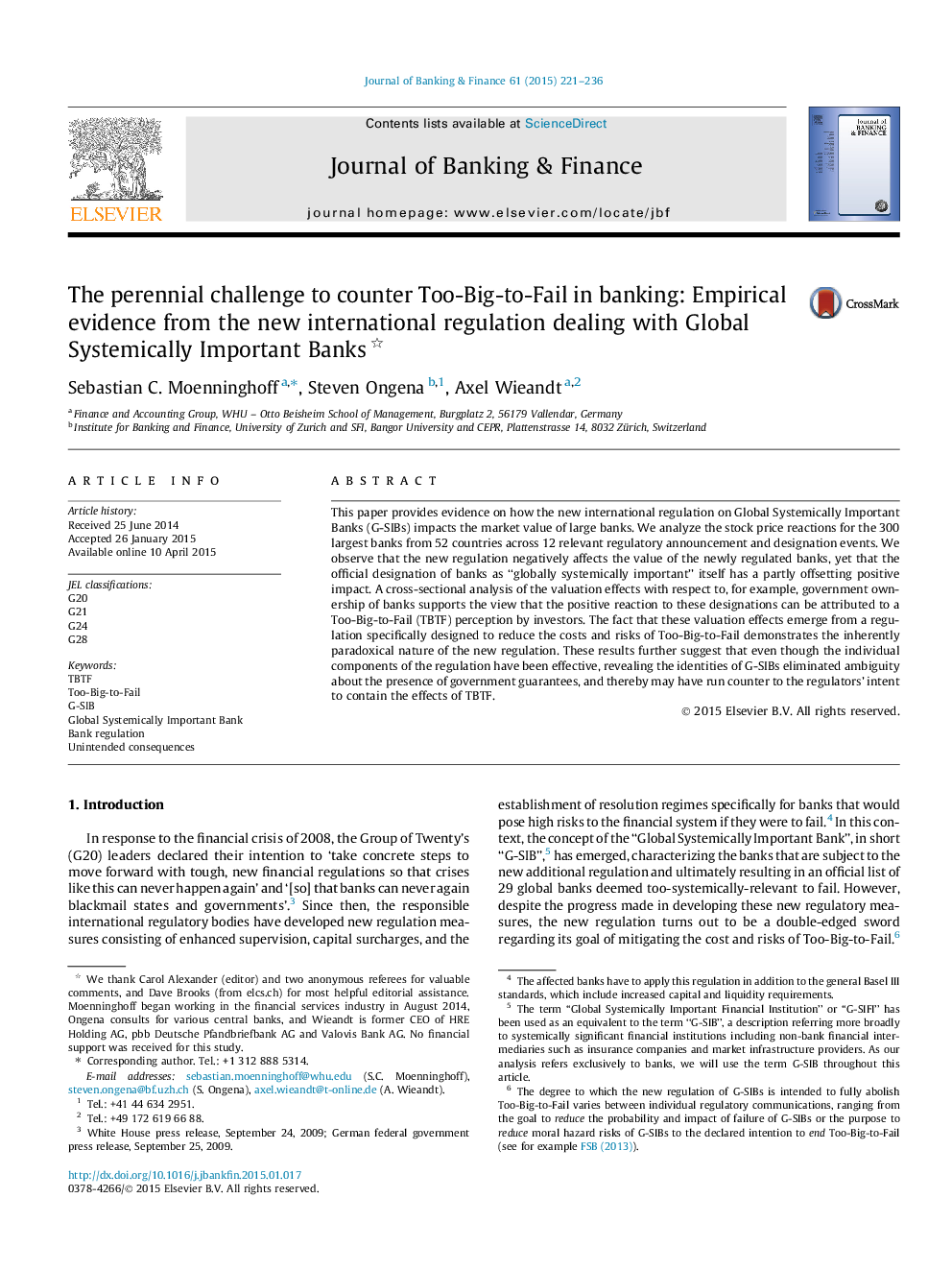| Article ID | Journal | Published Year | Pages | File Type |
|---|---|---|---|---|
| 5088495 | Journal of Banking & Finance | 2015 | 16 Pages |
This paper provides evidence on how the new international regulation on Global Systemically Important Banks (G-SIBs) impacts the market value of large banks. We analyze the stock price reactions for the 300 largest banks from 52 countries across 12 relevant regulatory announcement and designation events. We observe that the new regulation negatively affects the value of the newly regulated banks, yet that the official designation of banks as “globally systemically important” itself has a partly offsetting positive impact. A cross-sectional analysis of the valuation effects with respect to, for example, government ownership of banks supports the view that the positive reaction to these designations can be attributed to a Too-Big-to-Fail (TBTF) perception by investors. The fact that these valuation effects emerge from a regulation specifically designed to reduce the costs and risks of Too-Big-to-Fail demonstrates the inherently paradoxical nature of the new regulation. These results further suggest that even though the individual components of the regulation have been effective, revealing the identities of G-SIBs eliminated ambiguity about the presence of government guarantees, and thereby may have run counter to the regulators' intent to contain the effects of TBTF.
